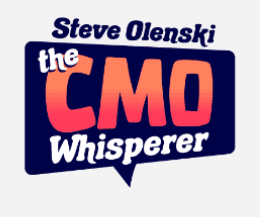Can You Repair A Dysfunctional Team?
Image via Hamster

It doesn’t matter what type of business or organization you run. If you have more than two people employed by the organization, teamwork is essential for goals to be met. But Employment is hardly a pre-requisite for that either, as you’ll still need to engage in teamwork with people you pay for services, such as outsourced help or a retained accountant.
As such, teams, be they one-on-one partnerships or office departments, will require attention and care to manage appropriately. But what if your team is dysfunctional? What if they barely listen to one another, are engaged in conflict and gossip, and rarely report updates?
Can you fix a team like that? Some might say no, that the entire department needs to be remade from scratch. However, we believe you can salvage some operations by paying attention in the right places. Let’s consider what that may look like:
Identify The Source Of The Friction
It’s easy to look at the surface-level issues; for example, if your people aren’t communicating, deadlines are being missed, or there’s tension in the air, you may think treating that is the final step. However, the real work starts with identifying the root cause. Is there one person consistently creating problems? Or is the friction stemming from a deeper issue, like unclear roles or unrealistic expectations? Are you just understaffed and expecting too much from the team? Are you too friendly with them, and is accountability something they never expect? This gives you a place to start.
Set No-Tolerance Attitudes & Remove Toxic Staff
A soft approach can be considered “the wiser option” by some people, but ultimately, your staff should be professional and honest no matter what. If they can’t do that, there’s no real excuse. That’s why this might mean making tough decisions. If someone on the team is consistently toxic, and efforts to address the behavior haven’t worked, it may be time to part ways. It’s not an easy step, but sometimes, removing a single disruptive person can have a positive ripple effect across the team. When people see you’re serious about maintaining a healthy workplace, they’re more likely to re-engage.
Assign Collaborative Projects
If you want a team, you must make your people act like a team. Encouraging mutual care through mutual projects can help rebuild trust within the team and give people clear roles to focus on. Collaborative projects also allow team members to learn from each other’s strengths and skills, which can help them begin to work instead of focusing on office politics. They’ll see the importance if you’re more of a presence after your renewed direction.
Work On Team Building
It’s worth Investing in a few activities outside the regular workday that can help the team bond, such as the excellent programs by Mark Corona https://markcorona.com/programs/, or corporate building days. It will show that you’re not just products of the office but people who can connect, collaborate, and build one another up. If you can showcase that, you’ll be in a better state.
With this advice, we hope you can more easily repair a dysfunctional team step by step. If these methods don’t work, you can always rebuild from the ground up.
Subscribe to our newsletter and Explore insightful conversations on workplace culture, Burnout, and leadership at the Breakfast Leadership Network, ranked Top 20 globally. Join us to thrive in the modern work environment.
Please stay connected with us! For more insights and valuable content, don’t forget to check out the following resources:
– **Breakfast Leadership Show Podcast**: Tune in to our podcast and get inspired by leadership lessons and success stories from top industry leaders.
– **Breakfast Leadership YouTube Channel**: Subscribe to our YouTube channel for video content on leadership, Personal Development, and more.
– **Hire Michael D. Levitt to Speak**: Looking for a dynamic speaker for your next event? Hire Michael D. Levitt, the founder of Breakfast Leadership, to share his expertise and insights.
Follow us on LinkedIn for the latest updates. Remember to share this article with your network!
Originally Published on https://www.breakfastleadership.com/























